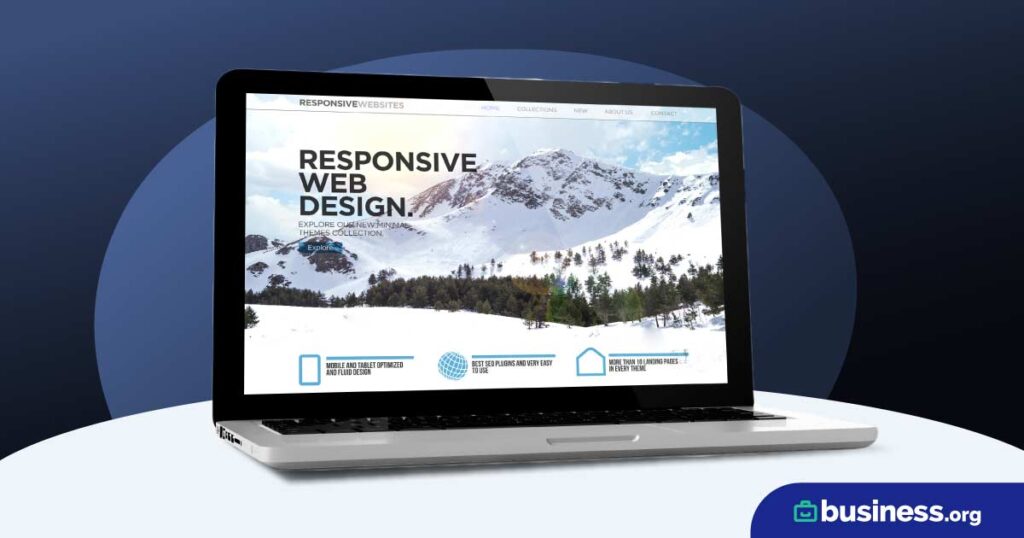We are committed to sharing unbiased reviews. Some of the links on our site are from our partners who compensate us. Read our editorial guidelines and advertising disclosure.
Small Business Owners Weigh In on the Realities of Starting a Business
Syndicated from The Penny Hoarder
What are some keys to small-business success? We talked to a few small-business owners to find out, and I am sharing a bit of what I learned when I went out on my own six years ago.
I decided to try working as a reporter and producer on a full-time freelance basis. I knew about writing and producing, but I had a lot to learn about running a business.
By signing up I agree to the Terms of Use and Privacy Policy.
Small businesses in the United States
There are 33.2 million small businesses in the United States, which the U.S. Small Business Administration Office of Advocacy’s 2022 Small Business Profile defines as businesses with fewer than 500 employees.
Most of them, roughly 32.5 million, have either no employees or between one and 19 employees.
Just less than half or 46.4% of employees in the U.S. work for a small business.
Success isn’t always easy. The report says between March 2020 and March 2021, 1.1 million businesses opened, while 965,995 closed. Keep in mind, that was during the peak of the COVID-19 pandemic.
Why start a small business?
For business owners, there’s a desire to make decisions for yourself and do what you want to do.
Steve Dunn is a mediator based in Charlotte, North Carolina. For 21 years, he was both a litigator and a mediator at a law firm. He left the firm in 2019 to go it alone as a mediator.
“I realized that I had this dream to be a full time mediator and knew if I was going to do it, I needed to make myself do it by just jumping into the deep end of the pool,” Dunn said. “So I went to my partners and gave them six months notice.”
Sometimes, the entrepreneurial spirit has always been present, like for Jennifer Marcus, the co-owner along with her husband, Heath, of Mad Science of Hampton Roads in Virginia.
“[My husband] grew up in a family of business owners and saw a lot of ups and downs. He knew there are great parts about it and some really hard parts,” Marcus said. “I think it really appealed to us to control our own destiny, not have a boss, be able to set goals and reach them, and create something on our own.”
Other times, life gives you the kick in the butt you need to make a decision to go out on your own. That’s what happened to me when the funding ran out for the project I was working on for 14 years as a full-time employee at a college.
I had to find something to do, and since I love to travel, I decided to try something I could do from anywhere and take time off when I wanted to. That meant working for myself.
For Jeanine Blackburn, she wanted to help fulfill her daughter’s vision.
Jeanine Blackburn is the CEO and co-owner with her daughter Alyson Blackburn of Kolor-N-Kiln paint-your-own pottery studio in a mall in Pittsburgh, PA.
They opened their doors in June 2013 after Jeanine Blackburn was downsized from a corporate job and Alyson Blackburn was graduating from college.
“It was never my dream to be an entrepreneur. I liked having a guaranteed paycheck. I just kept stepping out on faith,” she said. “I had some money set aside and I was just thinking what better way to invest in my daughter’s dream. I said I’ll try it and if it doesn’t work, I could always go back to what I know.”
Deciding what kind of small business to open
Deciding what kind of business to open can sometimes be a challenge. There are all kinds of possibilities. Do you follow your passion and try to find a way to make money at it? Do you open a franchise of something that already exists? Do you do something else entirely?
For Dunn, he knew mediation was what he liked about his law firm job, so finding a way to do that full time was his goal.
“I had a moment where I realized how much I really hated the litigation aspect of my job. A light bulb went off and I realized I didn’t have to do this,” he said. “It was a moment of clarity about how unsatisfied I was with what I was doing.”
Opening a franchise was the best option for Jennifer Marcus. She and her husband, Heath Marcus, opened their location in 2008 after Heath left a military job and Jennifer wanted to reenter the workforce after staying at home with three small children.
“We were ready for a new challenge and a new adventure,” she said. “But we were nervous about not having a steady paycheck and a lack of financial security, which is super common. … We thought there was a little bit more of a safety net in some ways if you’re following a pattern that someone else has set for you.”
They started looking at all kinds of franchises and even met with a franchise attorney who suggested they look for an established brand with franchising experience that did not have a location in their area.
“Mad Science had been franchising for about 20 years already and had franchises all over North America and the world, but none in our part of Virginia,” Marcus said.
Finding funding
It’s not cheap to open a new business, no matter what it is. There are startup costs.
Even as a writer, I realized I needed big things like business insurance and smaller things like a good computer with my own software licenses and paper and printer ink to get things going.
Everyone we talked with said knowing how much you can spend on opening the business is important.
“We put all our eggs in that basket,” Marcus said. “[My husband] left his government job and worked full time with Mad Science. I did not have an income because I was a stay-at-home mom and I worked part time in the business. We couldn’t live off that income so we took out loans.”
Even after covering expenses and making a profit from the beginning, a change was necessary.
“We were running up the credit cards a little too much and we thought we needed to figure something out,” she said, adding that’s when she started working for Mad Science full time while her husband took a job outside the business.
A stock deal that came with being downsized from her job helped Blackburn fund Kolor-N-Kiln.
“When we opened, I was nervous. I was excited. I was anxious. I just spent all of this money and was wondering what would happen if nobody shows up,” Blackburn said. “How do I get paid?”
Luckily, people showed up.
“On grand opening day, we were jam-packed.”
Choosing a location
We’ve all heard location, location, location when referring to the success of just about anything.
For owning a business, it can be about a physical space to open a shop, start a restaurant, or provide a professional service.
It can also be about finding the right place to do paperwork and administrative tasks.
The Blackburns needed to find a place for their pottery studio that had enough space, was easy to access, had enough parking, and was within their budget.
“I did a ton of research, driving around, trying to find every pottery studio I could find and visit,” Blackburn said. “I brought back a lot of data because that's my background and then figured out if it would work. We wrote down ideas and brainstormed almost too much about what it could look like.”
The result was a 1,100-square-foot storefront in a strip plaza with room for 35 people inside.
“We opened on faith. To be 100% honest with you, we opened with a lot of, ‘let’s do it and see if it works,’” she said. “If it doesn’t, we could tweak it.”
The current mall location became available later, and Kolor-N-Kiln moved to a much bigger 5,700-square-foot space.
While Marcus knew her business was primarily going to be instructors going to various locations, they decided to get an office space.
“You can absolutely run Mad Science out of your house, but having three little kids, we just wanted to go to work somewhere,” she said. “We wanted to make it really professional.”
Realities of business ownership
As a business owner just getting started, you’re your own marketing and sales department, IT department, scheduling department, accounting and invoicing department, and much more.
“What I regret is you don't think about the number of hours you've been managing the business,” Blackburn said. “When you work for somebody else and they’re only open from 8 to 5, you only work 8 to 5. When you own your own business, you don't get a break. You don't get to take a day off not thinking about the business.”
She said it’s important for you and everyone around you to prepare for the amount of work it takes and that it will take many more hours than you think.
“There are so many little things that can fall through the cracks,” she said, and suggests making lists and keeping a detailed calendar of what needs to be done.
At first, Dunn said he thought it would be fun to do everything himself. He even learned how to do his own web page.
“It was like a new challenge. I kind of embraced the idea that I could do everything just exactly the way that I wanted to do it,” he said, adding he soon realized how much the assistants at his law firm used to do for him, like scheduling and invoicing.
“It quickly became a chore and was something I did not enjoy and did not want to do. The newness and freshness wore off very quickly.”
That’s about the time Miles Mediation & Arbitration approached Dunn about joining their team as a contractor, not an employee. For a percentage of revenue, they now handle those kinds of things, provide office space, and do the website and some marketing, leaving Dunn to do the mediation he enjoys.
Marcus knew from the beginning employees were necessary.
“We knew right away that we were not going to try to do everything ourselves and we were going to hire people to work for us,” she said. “There were other franchise owners who did everything themselves for the first year or two, and we knew that was not going to work for us. We wanted to have weekends with our kids.”
I still do all of the administrative tasks myself, and I need to make sure I need to set aside time for them.
Being prepared for downturns
All of the business owners we talked with were up and running successfully before COVID-19 became part of our lives in March 2020.
As we all know, the pandemic forced everyone to change and pivot.
Preparing for the worst is something Blackburn says all business owners should do. While nobody wants to think about a doomsday scenario for your business, she says the fact she has always planned for the worst things that could happen helped her weather the pandemic and anything else that might come along.
“When you’re opening a business, you need to know your backup plan and a pivot plan,” she said. “If the business is not going anywhere, when is it time to bail out? You have to have an entrance plan and an exit plan.”
She said the plan doesn’t need to include everything, but it should lay out the triggers of when it might be time to say goodbye.
“Is it when I’m broke and owe everybody and am still borrowing money to stay afloat? That’s not success.”
You are only one person
No matter if you handle everything yourself or hire people, all the business owners we talked with said knowing your limits and making sure you have time for yourself is important.
“I beat myself up a lot that I wasn’t working hard enough for many years. I was learning how to be a working mom and I was learning how to be a business owner and that was a double whammy,” Marcus said. “I was working towards building something that might eventually produce a steady paycheck, so it felt even more key that I was giving it all my time.”
After a period working late into the night and being exhausted, reality hit.
“I looked at myself in the mirror, and said, ‘Jen, don’t beat yourself up. You don’t need to work at nine o’clock at night. It’s okay to go to bed,’” she said. “I wish I could have learned sooner to put my own rest first. You need time off.”
Dunn said he wished he realized earlier he couldn’t be everything to everyone.
“My initial vision as a mediator was to be the mediator for all occasions like a Swiss Army Knife of mediation, available for any case, anywhere, anytime, anything you need,” he said. “What I eventually realized is that it was much more productive for me to focus on what I actually know and what I'm actually known for, rather than trying to be all things to all people, and that is employment law.”
Enjoy the ride
Everyone we talked with said the efforts they have put into their businesses have been worth it.
“In a couple of years, I would like to step completely out of it and let it be a company [my daughter] runs. It’s her legacy,” Blackburn says. “She can grow it and do whatever she wants to do with it. It’s like a movie where the man and woman ride off into the sunset. I’m looking for my husband and I to ride off into the sunset. I want to hand it over to my daughter 100%.”
For Dunn, the ability to control his calendar is a huge bonus.
“I can decide when I am available and when I am not. I have never had that. I can schedule a vacation.”
It took a while, but Marcus said she finally found balance.
“It’s okay to work a half day and go get a massage or have lunch with a friend if you’re a business owner. You’re the boss,” Marcus said with a laugh.
For me, I realized I really can work from anywhere and nobody needs to know where I am. As long as I have a phone, a computer, and internet, I’m good.
Tiffani Sherman is a Florida-based freelance reporter with more than 25 years of experience writing about finance, health, travel and other topics.
Disclaimer
At Business.org, our research is meant to offer general product and service recommendations. We don't guarantee that our suggestions will work best for each individual or business, so consider your unique needs when choosing products and services.




